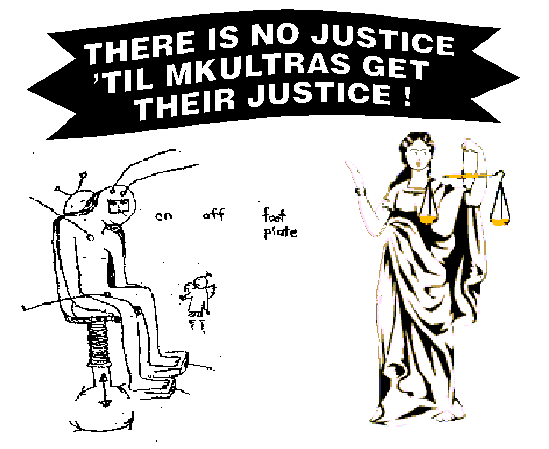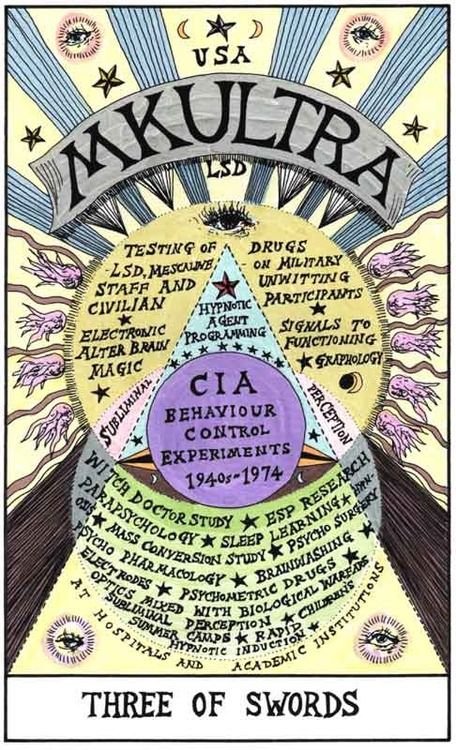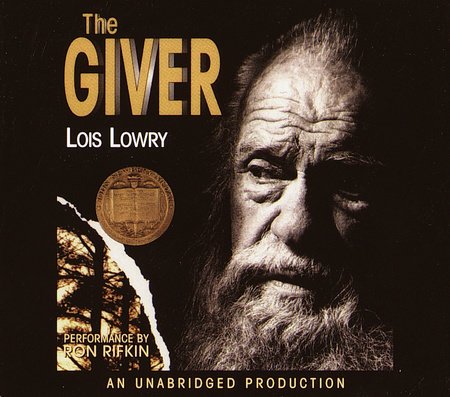Something that I think about frequently, but am never really able to draw any solid conclusions or find information for, is “Gifted and Talented” programs in schools. I’ve searched for years online to find any sort of forum or explanation for what exactly the purpose of these programs is, but to no avail. So naturally, I thought that here would be a good place to start a discussion.
While I lack formal education about this topic, I definitely make up for it with firsthand experience. Hopefully, this post will help me to find others who have also participated in these programs and wonder about it like I do.
In case you’re unfamiliar with what exactly it is that I’m referring to, allow me to explain. Do you remember in school, starting at a very young age, that your classroom was subtly segregated into 3 different groups? You probably never noticed because you weren't meant to, but it was.
For example, it began in first grade with which reading group you were put into. If you were an averagely developed reader, you were put into a reading group with the other average readers. If you were still a bit undeveloped as a reader, you would be put into the “slow readers” group; and the same for the readers who were more advanced than the other two groups. The teacher never really pointed it out that there is a difference between the groups, so as not to hurt anyone’s feelings; but nonetheless, the separation and labeling was still there. This was, however, just the beginning.
As you progressed through elementary school, this segregation became more and more pronounced. By this standard, you would again be separated into your “appropriate” group, with each grade you entered. Eventually, segregation based on standardized and special testing began. Would you be a student who needed extra help, one who easily could keep up with the regular curriculum, or would you be a student who would be deemed as ‘gifted and talented?’
The nature of what might be included in ‘special needs’ and ‘regular’ coursework is obvious, but what exactly does the coursework of being “gifted and talented” entail? What is its purpose? Who looks at these test scores and decides that some students are more gifted than others and what difference does any of this make in the long term? I’ve struggled for years trying to understand why anyone cared whether or not I had “above average” intelligence.
The students who participate in these programs attend their regular classes with all of the other students; but a few times a week, they are shuffled into their ‘GT’ classes, as well. These programs go by different names, depending on the school district; but the curriculum taught is fairly standard, across the board. The classes include a lot of creative and critical thinking activities because according to the Texas Association for the Gifted and talented, the Federal definition of ‘gifted and talented’ is as follows:
"The term ‘gifted and talented,” when used with respect to students, children, or youth, means students, children, or youth who give evidence of high achievement capability in such areas as intellectual, creative, artistic, or leadership capacity, or in specific academic fields, and who need services or activities not ordinarily provided by the school in order to fully develop those capabilities." (http://www.txgifted.org/what-is-gifted)
The Columbus group (which I'd like to look deeper into,) says:
“Giftedness is asynchronous development in which advanced cognitive abilities and heightened intensity combine to create inner experiences and awareness that are qualitatively different from the norm. This asynchrony increases with higher intellectual capacity. The uniqueness of the gifted renders them particularly vulnerable and requires modifications in parenting, teaching and counseling in order for them to develop optimally.” (http://www.txgifted.org/what-is-gifted)
It is also noted on txgifted.org that gifted students "possess[es] an unusual capacity for leadership."
An average IQ score ranges between 85-115 and being gifted means that your IQ is anything above 115. So what difference does this really make? What are these ‘capabilities’ that the TAFGT speaks of? This leads me to believe that perhaps our brains are more capable than what we are told. Why else would a public school bother to especially nurture the talents and abilities of only a select group of its students? Why does IQ even factor into this because aren't all children capable of anything, if nurtured properly?
It took many years of being out of school to begin connecting the dots that my education was not the same as other students. I eventually realized that I had received somewhat of a private school education within the public school system.
But still, I ask, "Why?"
There were a lot of very bright, intelligent children in my classes - why weren’t they selected too? Why was I frequently being pulled out of my regular classes to take tests that measured my cognitive abilities and spatial reasoning? To this day, it doesn’t quite make sense. What are the "gifts?" What are the "talents?" Could this mean that we have more senses than we're aware of? And if so, what are they and what can we do with them?
Why does this seem to be a rarely discussed, very hush-hush topic, in scholastic circles? Are there people out there who don't want us to know what our minds are truly capable of?
Even with all of all the testing, it was never really clearly explained to my mother what my "above average" scores meant. She was a proud mom who, just like me, didn't know any better in order to ask the right questions.
Looking back on my school years, I can see that this label affected my entire education. It turns out that the books I was instructed to read were oftentimes far different than what the regular students were reading.
In fact, I realized that sometimes we even participated in field trips and activities that the average students knew nothing about. There was one critical thinking bowl type of activity that we did, but I can’t recall its purpose; and one of the field trips we took included dissecting a donated human brain. Although I can’t remember what the purpose of that was supposed to be either.
I never made a point of it to remember those details because at the time, I didn’t think there was anything out of the ordinary about what we were doing. It’s only retrospectively that I can see it, but now the memories are hazy.
But again, why did we get to do something as cool as dissecting a brain and the others didn't? Actually, now that I'm grown, I realize that this was a pretty morbid activity to have middle schoolers participate in. There is a certain sense of mortality that comes along with actually seeing, touching, and cutting into a human brain. It almost seems like a bit of a twisted way impose trauma on the sensitive, impressionable psyches of children.
Looking back, there were possibly other instances of trauma induction that the other GTs and I may have been made to experience; but it's all just too difficult, if not impossible, to prove. Either way, I'd rather not get into it just yet, anyway. And regardless, this is all based on supposition at this point, anyhow.
It would be easy to write this off as that maybe my intelligence was recognized at an early age and my school wanted to support my educational growth. That would make total sense. After all, I did learn to read and write around the age of 3 and was quite proficient at it by the time I reached school age; so this would be easy to understand.
But here’s the thing, I didn’t attend the same school or school district throughout the entirety of my education. If I had always attended the same school, it makes the supportiveness theory incredibly plausible. It's reasonable to believe that if you knew the same teachers your entire life, they would all be greatly invested in helping succeed.
In fact, I attended 5 different schools, in 4 different school districts, in 2 different states, from kindergarten until graduation. And no matter which school I went to, these programs always found and recruited me right away.
At the time, I didn’t think anything of it because it was what I was used to. I was actually very proud of it because I thought it simply meant that I was a smart kid. What child wouldn’t be proud of that?
But as proud as I was, I never really thought that it made me too special or different from any of the other children. I figured that I was just like everyone else, except maybe I tend to score a little bit higher on my grades and test scores.
Then around middle school, I faintly began to notice that not all of the children in my grade were learning about the same things.
The school I attended at the time was divided down the middle by a hallway and each side of the hallway had 4 classrooms around a smaller, square hallway. Each side of the hall was given a team name and colors; I can't remember what they were now. Sounds innocent enough, right? Go team spirit!
Over the course of the year, not fully understanding what it meant, I noticed that the other “team” of students always seemed to be having more fun than mine.
It seemed like my team was always stuck learning the harder material, doing more homework, and reading more difficult books. Meanwhile, the other team would be decorating their side of the hallway or receiving an extra recess period.
I'll admit it, I was absolutely jealous! “Why do they get to do arts & crafts and play around, while I’m stuck over here doing this hard work?” I wondered.
It was during this period of time that I read a book in my English class, which little did I know, would impact the outlook of the rest of my entire adult life. The book I read was “The Giver.”
Hopefully, many of you have read the book, seen the movie, or are at least vaguely familiar with what it is about. But for those of you who are unfamiliar, “The Giver” is a dystopian novel, which has been banned in many places, written by Lois Lowry. (If you haven’t read any of Lois Lowry's work, I highly recommend doing so! She is an incredible author!)
The plot of the story is set in the future, in a society based on “sameness.” No one can see any color, parents receive their children from what is basically a “breeder hospital,” everyone is given their lifetime career at the age of 12, and no one in the community goes hungry or homeless because the food is delivered to everyone’s home overnight.
In this fictional society, when an elderly person reaches a certain age or any person breaks a “law," they are sent to “Elsewhere;” which is implied to mean that they are euthanized. If a birthmother, (synonymous with career breeder,) bears twins, only the healthier of the two is allowed to live, while the other is euthanized.
No one in the community has any memories of the past or how or the world used to be. They know nothing about war, poverty, or even what love is. Emotive words have been banned, but no one living can recall a time when they weren’t. To keep this summary short, the main character Jonas finds out that his job will be “Receiver of Memories.” He doesn’t know what this means until he meets the Giver, who is the only man who has memories of the old world. Jonah’s job is to receive these memories, so as to ensure that the mistakes of the past are never made again after the Giver passes on to Elsewhere.
If you haven’t read the book, I suggest that you definitely do or at least the watch the film that came out a few years ago. The movie leaves a lot of parts out but is accurate enough to give you a good gist of the plot. Here is a link to the .pdf version: http://schools.smcps.org/lms/images/6thgrade/thegiver.pdf

So, what does any of this have to do with being gifted or mind control? Well, it turns out that the other team of students I mentioned never read this book. I eventually learned that the hallway was divided by the perceived intelligence of the students. If you were a smart one, you were over here; if you weren’t as bright, you were put into classes over there; although I had no knowledge of this at the time.
Once I realized this in my adult life, it entirely changed the way I viewed my schooling. No longer did I naively assume that I was the same as every other student. So then, I began to wonder… Why did we read this very creepy dystopian story while the other children didn’t, and what other books was I told to read that not everyone else read?
Like any other form of media, it is said that books can be used as a form of mind control to program the reader. A good example of this is the conspiracy theory that "Catcher in the Rye" had something to do with Lee Harvey Oswald's alleged assassination of John F. Kennedy.
We know that newspapers and books are definitely utilized to spread propaganda, just as they were used by Hitler. So what was the point in this particular case? What were we supposed to learn from reading this?
Where I stand today, it seems like a story meant to desensitize children to the idea of the New World Order and depopulation...but that’s just my opinion.
But if this is true, why wasn’t the other team learning about it too? Or were they meant to be the ignorant “breeders” of the future? I can't understand why some would learn about these things, but not others.
Also, why would the school board or whoever specifically choose this as a topic to teach children at all?
For example, what if some children were directed to read George Orwell's "1984," but the rest were instructed to read 'Romeo & Juliet?' What would be the purpose or benefit to society, in that?
Once this clicked for me, it made me question that if my education was so differently administered than that of students across the hallway, what else might I have subtly been being taught in the gifted programs?
I'd never really thought about it before then, so it's difficult to say why or point to very many other specific examples. Looking back, I recognize that something was amiss about the whole situation, but I can't completely put my finger on what it is or why.
It's like the answer is right in front of me, but I just can't see it clearly; like the picture is too big for me to view its entirety.
I mean, did MK Ultra really end in 1974 or did we just continue it in a more subtle manner in schools? Could it be that gifted students are being identified and segregated in order to be programmed for a higher, more sinister purpose? Are we welcomely letting schools brainwash and manipulate our children?
I’m not saying that I know anything factual or concrete, regarding public education, these GT programs, and mind control. However, I am absolutely saying that there is something strange, even not-quite-right, about them. It’s mostly just something that I intuitively feel in my gut. I’m not even really out to prove a point about anything here, because maybe there is no conspiracy to be found at all. Perhaps all of this can be explained by knowledge and information that I simply haven’t found yet.
In fact, I would love for someone to point me to the answer and proof of it. Either way, this is something that takes up a lot of space in my mind and it just feels good to get it off of my chest. I would love to find some answers and reach a resolution here; but really, I would happily settle for finding others to discuss it with.
It’s like a giant puzzle that I can see the pieces to, yet I can't figure out exactly how to put them together. Maybe there is someone out there has participated in these types of programs and can explain it, or at very least wonders about the same things I do.

In all honesty, I’m a bit uncomfortable writing about this; but somehow, sharing it with strangers isn’t nearly as scary as sharing it with people I actually know. I understand that this could easily be construed as an attempt to be considered different or special. Some might even mistake it as a cry for attention- but I swear, it is anything but that.
In fact, all I’ve ever wanted in life is to blend and fit in. I was always the too-skinny nerdy girl with buck teeth; I’d have given anything to just be like everyone else. And sometimes, to this day, I still feel that way. It’s just that the older I get, the more and more I notice that I am never on the same page as most everyone else, no matter how hard I try to sync up.
Being in these gifted and talented programs is the only thing that I can really identify that distinguishes or separates me from everyone else that I’ve been around, outside of the others in these GT classes. Still to this day, I find that I tend to click best and most immediately with people who were also in these programs or should have been, but were never identified as such.
Public schools are notoriously underfunded, so maybe we can figure out why they would dedicate so much time, money, and effort into these programs. There must be a logical reason for grooming children of special ability, but for what purpose?
Do you have any thoughts or experiences relating to this topic? Were you a gifted and talented program participant who has ever wondered about these things too?
If so, please feel free to share in the comments below. I greatly appreciate you taking the time to read and interact! Maybe together, we can solve this mystery once and for all! (Or at very least, we can be in good company with each other!)


.jfif)


Wow, Francesca, that was a good post.
I don't know how far you have traveled down the freedom path, but here is a person you may or may not like to read.
http://www.whale.to/b/sp/springmeier_h.html
Thank you for the great link! Looks like I have some reading to do!
Let me know when you are ready for more, I may have a line on what you are looking for.
Glad to find a reader.
Thank you! I'm going to check out the link you posted there and I'll definitely be back to ask for more later!
Our path out of having been intentionally dumbed down is gathering more information.
I like to share what I have found, to improve the average around me.
Glad you are here.
we need to talk and work together. do you have discord? add me Tron#3200
I haven't checked my Steemit in a bit, just now seeing your comments. I'll check out the link and add you.
Hmmm...I can't find you on Discord.
https://github.com/0x92/G.A.T.E-Research
Great post Francesca! I have found myself wondering the same thing. I was selected for the gifted programs in the second grade, and continued in them all through my schooling. I second many of your experiences (reading special books, including the Giver, studying the brain and watching live dissections, being segregated into groups and teams/halls, etc.) I would be interested in chatting more with you about your thoughts?
When I was a teen, I expressed a type of dissociative disorder, which is generally believed to be caused by some sort of reoccuring trauma as a child. But I assure you, I had a very safe, normal, and happy childhood, and can point to no source of "trauma" in my past... which leads me to wonder about these gifted programs? Who knows, but its something interesting to think about...
I was in a Talented and Gifted program in the Midwest called TAG. The same year I entered the program, I had an interview with unnamed individuals, a man and a woman if I recall, who took me to an empty classroom and asked me several questions about what I thought of the US government and if I would ever consider working for the government. I told them - at age 12 - that I was a communist and I would probably work against the government instead of for it because the government was corrupt, etc. They only sat with me for a few minutes then told me, "Well, you won't remember this anyway." And I didn't really remember it very well for years. It stayed with me but seemed kind of blurry. In my early forties it fully surfaced. It is a very vivid memory.
Not long after this interview, someone, I never learned who, spray-painted, in huge letters on an old abandoned storage tank on the way into town, the route all the school buses took to school, "LARS IS A NERD". There were other strange occurrences as well but just as much speculation and it would take too long to go into.
I do believe that they were "TAGging" students with this program. The other boy who always went to these classes with me ended up talking some time later about how he was possibly going to get into MIT which is a well known government affiliated university. I wonder if he answered the questions in the interview differently than I did. I'll probably never know in this life.